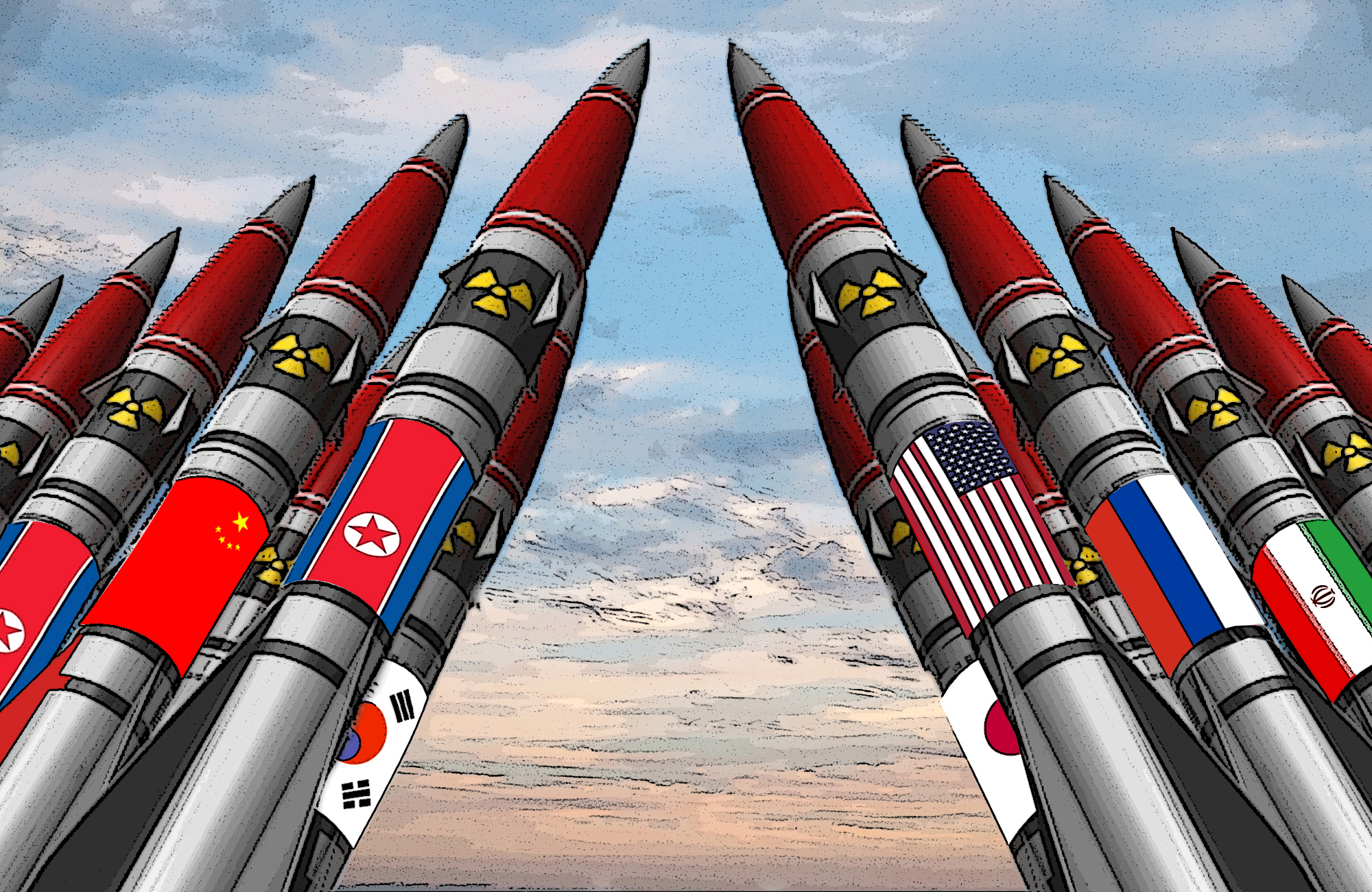Nathan Gardels is the editor-in-chief of Noema Magazine. He is also the co-founder of and a senior adviser to the Berggruen Institute.
Last week, the Nobel committee expressed an improbable hope by awarding its peace prize to the International Campaign to Abolish Nuclear Weapons. This week, we are seeing a likely reality of more, not less, nukes in our future.
U.S. President Donald Trump’s unraveling of the Iran deal dashes the hope of negotiations with North Korea and risks creating a fresh nuclear crisis in the Mideast. As Harvard’s Graham Allison writes, “For all its flaws, the nuclear agreement is the one major hurdle preventing Iran from becoming a second North Korea — a rogue state with nuclear weapons.”
In a provocative essay, veteran Singaporean diplomat Bilahari Kausikan says it is time to accept the fait accompli of North Korea as a nuclear state and the establishment of a new balance of deterrence in the region, with Japan and South Korea going nuclear to defend themselves. Because North Korea now directly threatens the U.S., Kausikan argues, the pragmatic assumption of America’s allies must be that, in any conflict, Washington will protect itself first ahead of its allies.
That folding defense umbrella will leave Japan not only vulnerable to North Korea but also to domination by the other nuclear power in the neighborhood — China. “The decision to go nuclear will be extremely difficult for any Japanese government,” Kausikan acknowledges. “But when America’s extended deterrence is eroded, a Japan without an independent nuclear deterrent would be subordinate to China. This is an existential issue for Japan.” And if Japan goes nuclear, he sees South Korea doing so in turn.
Neither Japan nor South Korea are eager to become nuclear-armed states, Kausikan writes, and Washington is wary. “But for all three,” he says, “this is the least bad option. Japan and South Korea will remain within the U.S.-led Northeast Asian alliance, just as France and the U.K. remained within NATO. But a six-way balance of mutually assured destruction — among the U.S., China, Russia, Japan, South Korea and North Korea — will eventually be established in Northeast Asia.” Once established, Kausikan believes such a balance “will be stabilizing” because “all six countries are rational and are functioning polities” that will not invite their own destruction.
Chinese analyst Cui Lei adds another voice to those Asian realists who acknowledge that North Korea has already become a de facto member of the nuclear club and has little incentive to disarm. “The window of opportunity to roll back North Korean weapon programs has been closed,” he writes from Beijing. The long record shows sanctions won’t work, he argues, and a military assault, as many have said, is too catastrophic to contemplate.
But Cui departs from Kausikan on what should happen next. The balance disrupted by North Korea’s nuclear breakout, he says, can best be restored by an even stronger security guarantee provided by the U.S. “For deterrence to succeed,” he writes, “the U.S. must explicitly warn North Korea that it is ready to protect its allies, even if North Korean missiles with nuclear warheads can reach American soil.” Since Cui sees North Korea’s atomic armament as driven by insecurity over U.S. intentions, he proposes that Washington “reduce military activities in the region as a goodwill gesture to North Korea.”
Social media threatens democracy
Following up our theme last week on how the viral business model of digital giants like Facebook and Twitter undermines democracy, eBay founder Pierre Omidyar this week adds his influential voice. “For all the ways this technology brings us together, the monetization and manipulation of information is swiftly tearing us apart,” he writes. “From foreign interference in our elections to targeted campaigns designed to confuse and divide on important social issues, groups looking for an effective way to infiltrate and influence our democracy have found generous hosts in the world of social media.”
With his Silicon Valley counterparts in mind, Omidyar argues that “just as new regulations and policies had to be established for the evolving online commerce sector, social media companies must now help navigate the serious threats posed by their platforms and help lead the development and enforcement of clear industry safeguards.”
Secession fervor
While the Catalonian vote for independence from Spain has garnered headlines, the passions of self-determination for sub-national entities are gaining steam globally, from the recent vote for Kurdish independence in Iraq to a re-emergent secessionist drive in the southeast region of Nigeria.
“More than half a century after it gained independence from Britain, Nigeria is in crisis,” Remi Adekoya writes of the country’s resurfacing civil strife. “As tensions and violence between the government and separatists approach a breaking point, a third, equally risky solution has arisen: overhaul the political infrastructure altogether and decentralize governmental power.”
Adekoya urges Nigerians to look beyond clashes between the state and separatist rebels and focus instead on this third, unorthodox but politically moderate solution that he believes would best serve Nigeria’s citizens. He acknowledges that this approach will be challenging, but “it is necessary for moderates to take the reins in order to finally place Nigeria on a plausible path to achieving the collective success Nigerians have been promised since independence.”
This was produced by The WorldPost, a partnership of the Berggruen Institute and The Washington Post.
ADVISORY COUNCIL: Jacques Attali, Shaukat Aziz, Gordon Brown, Fernando Henrique Cardoso, Jack Dorsey, Mohamed El-Erian, Francis Fukuyama, Felipe Gonzalez, John Gray, Reid Hoffman, Fred Hu, Mo Ibrahim, Alexei Kudrin, Pascal Lamy, Kishore Mahbubani, Alain Minc, Dambisa Moyo, Laura Tyson, Elon Musk, Raghuram Rajan, Nouriel Roubini, Nicolas Sarkozy, Gerhard Schroeder, Peter Schwartz, Amartya Sen, Jeff Skoll, Michael Spence, Joe Stiglitz, Larry Summers, George Yeo, Fareed Zakaria, Ernesto Zedillo, Zheng Bijian, Marek Belka, Tony Blair, Jacques Delors, Niall Ferguson, Anthony Giddens, Otmar Issing, Mario Monti, Robert Mundell, Peter Sutherland, Guy Verhofstadt





